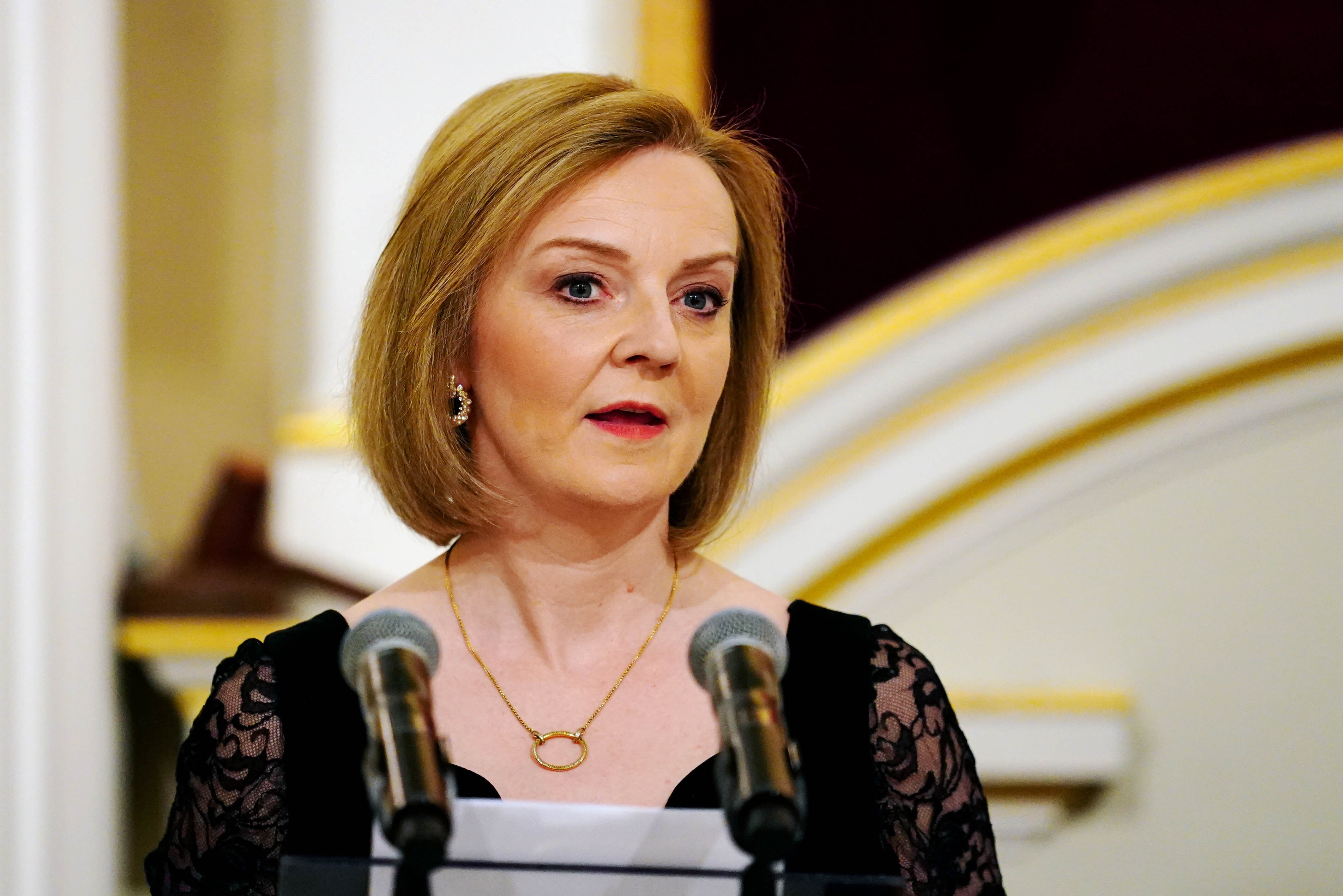Charities claim UK ‘putting politics before poverty’ in new aid strategy
Foreign Secretary Liz Truss said the UK ‘must use development as a key part of our foreign policy’.

Your support helps us to tell the story
From reproductive rights to climate change to Big Tech, The Independent is on the ground when the story is developing. Whether it's investigating the financials of Elon Musk's pro-Trump PAC or producing our latest documentary, 'The A Word', which shines a light on the American women fighting for reproductive rights, we know how important it is to parse out the facts from the messaging.
At such a critical moment in US history, we need reporters on the ground. Your donation allows us to keep sending journalists to speak to both sides of the story.
The Independent is trusted by Americans across the entire political spectrum. And unlike many other quality news outlets, we choose not to lock Americans out of our reporting and analysis with paywalls. We believe quality journalism should be available to everyone, paid for by those who can afford it.
Your support makes all the difference.International charities have accused the Government’s new aid strategy of being “more concerned with tackling China than tackling poverty”.
Under the new International Development Strategy published on Monday, the Government said it would spend more of its aid budget working directly with other countries and less on multinational bodies, such as the UN.
The switch is intended to give the Foreign Office greater control over how aid money is spent and allow the UK to offer an alternative to support from “malign actors” – understood to mean China and its Belt and Road Initiative, which has been criticised for involving large amounts of debt and coming with political strings attached.
Foreign Secretary Liz Truss said: “In an increasingly geopolitical world, we must use development as a key part of our foreign policy. Malign actors treat economics and development as a means of control, using patronage, investment and debt as a form of economic coercion and political power.
“We won’t mirror their malign tactics, but we will match them in our resolve to provide an alternative.”
As well as delivering “honest, reliable investment” and creating new trade partners for Britain, the strategy focuses on support for tackling climate change and global health, providing humanitarian aid and empowering women and girls – a key priority for Ms Truss.
But international aid organisations have said the strategy prioritises geopolitics over poverty alleviation.
Stephanie Draper, chief executive of UK aid network Bond, said: “Though this strategy contains some positive elements, it seems largely driven by short-term political and economic interests rather than the attempt to tackle the root causes of global crises such as inequality, conflict and climate change, which impact us all.”
Oxfam also spoke out against the strategy, with the charity’s head of government relations Sam Nadel describing it as “the latest body blow to the UK’s position as a global leader in tackling poverty”.
He said: “While there are some welcome words on the importance of addressing the climate emergency and supporting women and girls, when push comes to shove, this strategy prioritises aid for trade and the financialisation of development.
“It is clearly motivated more by tackling China than tackling poverty.”
Mr Nadel added: “A key test of this strategy will be whether it equips the UK to address urgent crises in places like East Africa where 28 million people are facing severe hunger. By gutting its aid budget, and now putting geopolitics above poverty, the UK has fallen short of the challenge.”
The Government reduced aid spending from 0.7% of gross national income (GNI) to 0.5%, breaking a manifesto promise and cutting £4.5 billion from the aid budget.
Monday’s International Development Strategy stressed that the Government was committed to returning spending to 0.7% of GNI “once the fiscal situation allows”.
In a written statement to the House of Commons, Ms Truss added that the strategy would “challenge dependency on malign actors, offering choice and bringing more countries into the orbit of free-market economies”.
But Labour MP Sarah Champion, who chairs the House of Commons International Development Committee, criticised the document as “little more than a rehash of existing slogans” that replicated Chinese tactics rather than challenging them.
Ms Champion said: “Supporting the poorest in the world should not be conditional on a trade deal or agreeing to investment partnerships.
“The UK has rightly been hugely critical of China for such an approach, so I fail to see why we are following down the same road. It is depressing and disappointing that the UK would devise a strategy like this.”
But the Foreign Office denied it was proposing “aid for trade” policies. A spokesperson said: “The International Development Strategy is about helping partner countries, in particular low-income countries, to build their economies sustainably, including through honest, reliable investment in infrastructure and trade.
“This strategy is not about providing ‘tied aid’ or aid in return for trade.
“The UK wants to offer a clear alternative to malign actors, so low- and middle-income countries are not burdened with unsustainable debt with strings attached.”